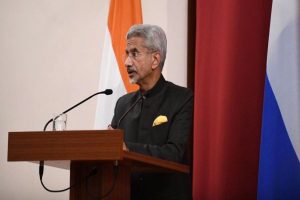Enhancing container movement and giving a boost to port infrastructure modernisation and expansion, Union Minister for Shipping Sarbananda Sonowal on Monday inaugurated new projects worth Rs 187.33 crore at the Chennai and Ennore Kamarajar ports.
Speaking on the occasion, he said the Ministry of Ports, Shipping and Waterways was committed to enhance maritime connectivity by modernising the ports to make the country a key player in global trade. The new projects included the four new Exim godowns at Chennai port and the doubling of rail connectivity at Kamarajar port, were aimed at strengthening maritime growth and infrastructure with sustainability.
“We are laying the groundwork for seamless operations and green practices, preparing our ports to meet the evolving demands of global trade while ensuring they align with environmental goals,” he said adding that these green port initiatives would streamline trade operations to meet the evolving demands of global trade in tune with environmental goals.
The new four Exim godowns, built at a cost of Rs 73.91 crore under the Sagarmala Scheme, cover an area of 18000 sq meters to provide dedicated and clean storage to sensitive cargo, including agro products and food grains. This is part of the initiative to expand trade capacity at major ports. Besides the godowns, Sonowal inaugurated a newly constructed concrete road, laid at a cost of Rs four crore, which would facilitate smooth movement of heavy cargo and container movement to the second container terminal. It would reduce dust pollution.
At the Kamarajar port in Ennore, the minister inaugurated the doubling of rail connectivity to the port, to accommodate the growing Exim demands. The Rs 88.91 crore project, comprising three rail bridges over the Kosasthalaiyar river and the Buckingham canal besides conversion of unmanned level crossings into interlocked crossings, would significantly increase the ports rail handling capacity form the present 22 rakes to 44 rakes per day. He also inaugurated a Shore Power Supply Facility for coal vessels to operate without depending upon diesel engines.












